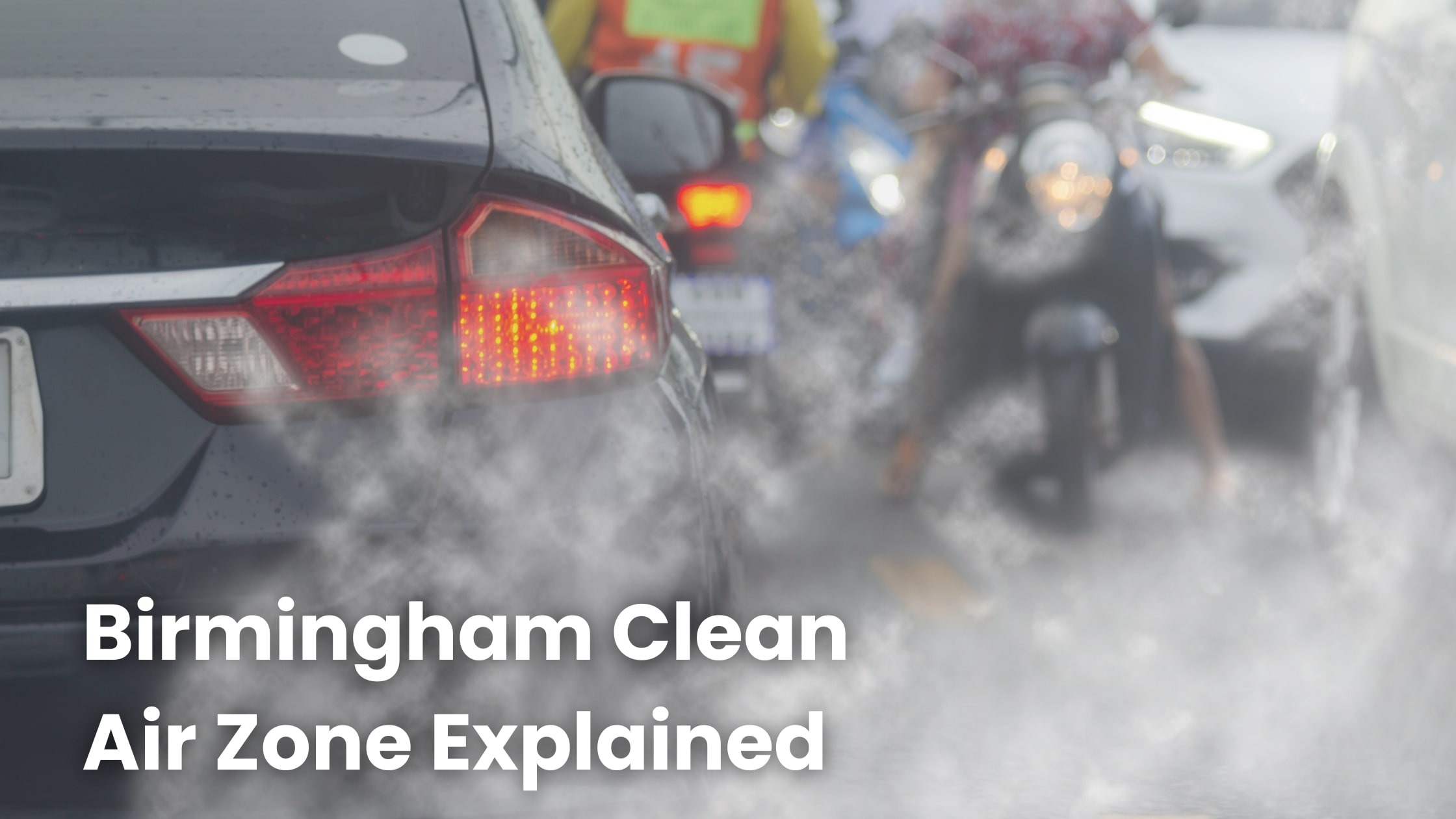Birmingham Low Emissions Zone
Birmingham, one of the vibrant cities in the UK, is taking a giant leap towards environmental conservation with its Low Emissions Zone (LEZ). Here, we will explore what the Birmingham Low Emissions Zone entails, the areas it covers, the associated costs and its significance.
What is a Low Emissions Zone (LEZ)?
A Low Emissions Zone, commonly referred to as an LEZ, is a designated area in a city where certain vehicles are restricted or required to meet specific emission standards. The primary purpose of an LEZ is to reduce air pollution and improve the overall air quality in that area. This initiative is often seen as a crucial step towards creating a healthier and more sustainable urban environment.
Why Birmingham Needs an LEZ
Birmingham, like many other metropolitan areas, has been grappling with air quality issues. The city has experienced higher levels of air pollution, primarily due to emissions from vehicles. Recognising the severity of the problem, Birmingham has taken the initiative to combat pollution and enhance the quality of life for its residents.
Birmingham's Commitment to Clean Air
Birmingham is determined to combat air pollution and its detrimental effects on public health and the environment. The Low Emissions Zone is one of the key strategies in Birmingham's efforts to achieve cleaner air and contribute to a greener future.
Coverage Area of the Birmingham LEZ
The Birmingham LEZ encompasses a carefully defined area within the city limits. It primarily focuses on the city center and areas with high traffic volume. A detailed map is available to provide a clear understanding of the covered zones. The LEZ covers iconic streets, key commercial areas, and transportation hubs, which are the primary sources of high emissions.
Birmingham Low Emission Zone Map
Who Will Be Affected
The Birmingham LEZ will impact a range of vehicles, particularly those with higher emissions. Residents and businesses within the zone will need to adapt to the new regulations and restrictions, which aim to curtail emissions from vehicles operating in the city. It includes diesel vehicles that do not meet Euro 6 standards and petrol vehicles that do not meet Euro 4 standards.
Costs Associated with the Birmingham LEZ
To maintain and enforce the Low Emissions Zone, there are associated costs. This includes fees for non-compliant vehicles, penalties for non-adherence to the regulations, and administrative expenses. It's essential to be aware of these financial aspects, as they will affect both individuals and businesses operating within the zone.
The fees for non-compliant vehicles may vary depending on the size and type of the vehicle. Regular monitoring and checks will be conducted to ensure compliance. It's important for vehicle owners and operators to budget for these potential costs.
Non Euro 6 compliant vehicles, including trucks, will need to pay the daily charge of £50.00. Trucks that do meet the Euro 6 standards will not need to pay the daily charge of £50.00.
Exemptions and Discounts
In an effort to make the transition to cleaner vehicles more accessible, Birmingham offers exemptions and discounts. These are aimed at certain categories of vehicles and individuals who meet specific criteria. Exemptions might be granted to essential service vehicles, low-income individuals, or vehicles modified to meet the emission standards.
It's crucial to stay informed about the eligibility criteria for exemptions and discounts, as they can significantly reduce the financial burden associated with the LEZ.
Implementation and Enforcement
The Clean Air Zone is in operation 24 hours a day, 365 days a year and covers an area of the city centre within the A4540 Middleway.
Over 300 road signs are in place to alert drivers about the Clean Air Zone. There are two types of signs in place.
The enforcement will involve regular checks and monitoring of vehicles within the zone. Vehicles found to be non-compliant may face penalties, which could include fines. The council will also provide guidance and information to help vehicle owners adhere to the regulations.
Impact on Air Quality
One of the primary objectives of the Birmingham Low Emissions Zone is to improve air quality significantly. It is expected to reduce harmful emissions, resulting in a cleaner and healthier environment for residents. The impact on public health and the environment is a critical aspect of this initiative.
Studies have shown that reducing emissions in urban areas leads to a decrease in respiratory illnesses and an overall improvement in public health. Cleaner air also has a positive impact on the environment by reducing the carbon footprint and mitigating climate change.
Alternative Transportation Options
With the introduction of the LEZ, Birmingham encourages the use of eco-friendly transportation options. Public transportation, cycling, and electric vehicles are some of the alternatives being promoted to reduce the overall carbon footprint in the city.
The city is investing in improving public transportation services and infrastructure, making it a convenient and sustainable option for residents and visitors. Electric vehicle charging stations are being expanded to support the transition to cleaner vehicles.
Public Reaction and Concerns
Any major policy change is bound to evoke public reactions and concerns. It's essential to take into account the feedback and apprehensions of the community. The Birmingham City Council is actively engaging with the public to address these concerns and provide clarifications.
The council has held public meetings and provided information through various channels to ensure that residents and businesses are well-informed about the LEZ and its implications. This open dialogue helps build understanding and support for the initiative.
Economic and Environmental Sustainability
The Birmingham LEZ is not just about cleaner air but also about sustainability. A reduction in emissions and pollution contributes to a more sustainable and economically viable city. The benefits extend to both the environment and the local economy.
Reducing pollution and improving air quality in Birmingham can lead to reduced healthcare costs associated with air pollution-related illnesses. Additionally, a cleaner environment can attract more visitors and businesses, boosting the local economy.
The Birmingham LEZ in Comparison
Birmingham's LEZ is not a standalone effort. It's part of a broader movement towards cleaner cities. Comparing it with the Low Emissions Zones in other cities can provide insights and valuable lessons for Birmingham's journey towards cleaner air.
Cities like London and Manchester have already implemented successful LEZs, demonstrating the positive impact they can have on air quality. Birmingham is learning from these experiences to ensure the effectiveness of its own LEZ.
The Birmingham Low Emissions Zone is a significant step towards a greener and healthier future for the city. By reducing emissions and improving air quality, Birmingham is setting an example for other urban areas to follow. It's an endeavor that calls for collective efforts and commitment from the community, businesses, and the local government.
Understanding Emission Zones: How Warrington Vehicle Centre Can Help
Navigating the complexities of Low Emission Zones (LEZs) and Congestion Charges can be challenging for businesses and individuals alike. Understanding the differences between these zones is crucial for compliance and cost-effective operation. To further clarify these distinctions and learn how they might affect your vehicle choices, read our detailed article on 'Low Emissions Zones vs. Congestion Zones'. At Warrington Vehicle Centre, we're here to help you find vehicles that meet the latest emissions standards, ensuring you can operate smoothly in any urban environment.
Navigate Birmingham’s Low Emission Zone with Efficient Isuzu Trucks
As Birmingham businesses adapt to the new Low Emission Zone, finding the right commercial vehicle is crucial. We offer a range of Isuzu trucks and pickups that combine efficiency with the power you need to keep your operations running smoothly. Explore our latest offers on new Isuzu trucks and discover how an Isuzu can help you navigate the city's evolving regulations with confidence. Visit Warrington Vehicle Centre, your local Isuzu pickup truck dealer, to find the perfect vehicle for your needs.




